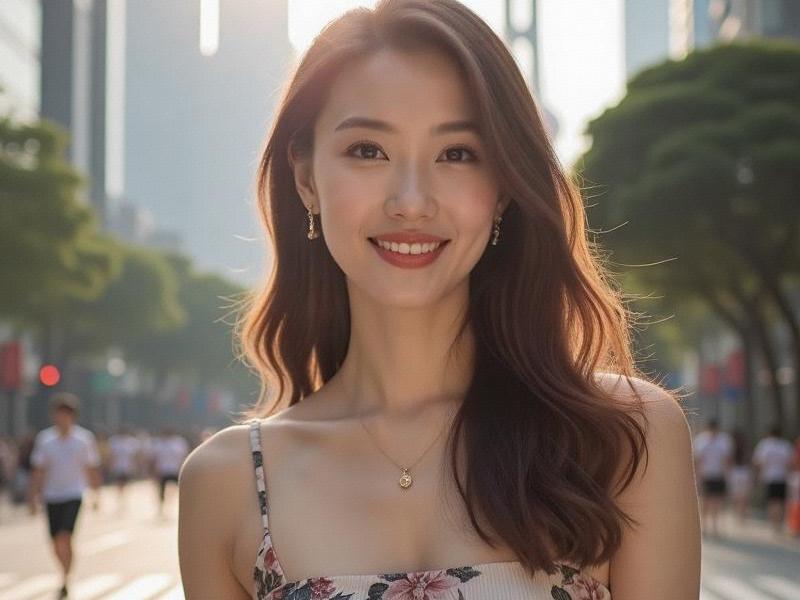This in-depth feature explores how Shanghai's women combine traditional elegance with modern ambition, creating a unique urban femininity that sets global trends while preserving cultural roots.

The neon-lit streets of Shanghai have long served as runways for some of China's most stylish women. But beyond the designer handbags and flawless makeup lies a fascinating story of cultural evolution, where traditional "Jiangnan" elegance meets 21st-century ambition.
Shanghai's reputation for beautiful women dates back to the 1930s, when the city's qipao-clad socialites became symbols of East-meets-West sophistication. Today's Shanghainese women maintain this legacy while writing new chapters. According to 2024 surveys, 68% of Shanghai women hold university degrees (compared to 52% nationally), and nearly 40% occupy managerial positions in multinational corporations.
What makes the "Shanghai beauty" distinctive? Local stylists identify three signature elements:
上海龙凤阿拉后花园
1. The "7:3 Ratio" - A balance where seven parts natural beauty meets three parts meticulous grooming. Unlike Western "no-makeup" looks or Korean glass skin trends, Shanghai women favor subtle enhancements that highlight rather than transform features.
2. "Economic Elegance" - The ability to mix high-end pieces with affordable finds. The average Shanghai woman spends 18% of her income on fashion, yet 73% can identify counterfeit luxury goods at a glance, according to market research.
上海龙凤sh419
3. "Multilingual Charm" - 92% speak English conversationally, 41% speak a third language, making them global citizens who nonetheless cherish Shanghainese dialect as a cultural heirloom.
The Bund at sunset reveals this duality perfectly. Young professionals in tailored suits switch effortlessly between WeChat negotiations and tea ceremonies. At Xintiandi's cocktail bars, finance analysts debate blockchain while maintaining flawless manicures - a detail 89% consider non-negotiable for professional credibility.
上海夜网论坛
This urban femininity faces challenges. Rising living costs (studio apartments average $1,200/month) pressure women to excel career-wise while societal expectations linger. A 2025 study showed Shanghai women spend 2.1 hours daily on beauty routines despite working 9.5-hour days. Yet their resilience shines through initiatives like "Women's Entrepreneurship Week," where female-led startups secured $42 million in funding last year.
Cultural commentator Li Wen puts it best: "Shanghai women didn't just adapt to globalization - they rewrote the rules. Their beauty isn't skin deep; it's the glow of someone who masters both Excel spreadsheets and which xiaolongbao stall uses the best crab meat."
As the city prepares for its 2025 International Beauty Expo, the world watches. From the traditional "white-collar beauties" of Lujiazui to Douyin-famous "cyber-posh" influencers, Shanghai's women continue redefining what beauty means in modern China - one perfectly balanced step at a time.